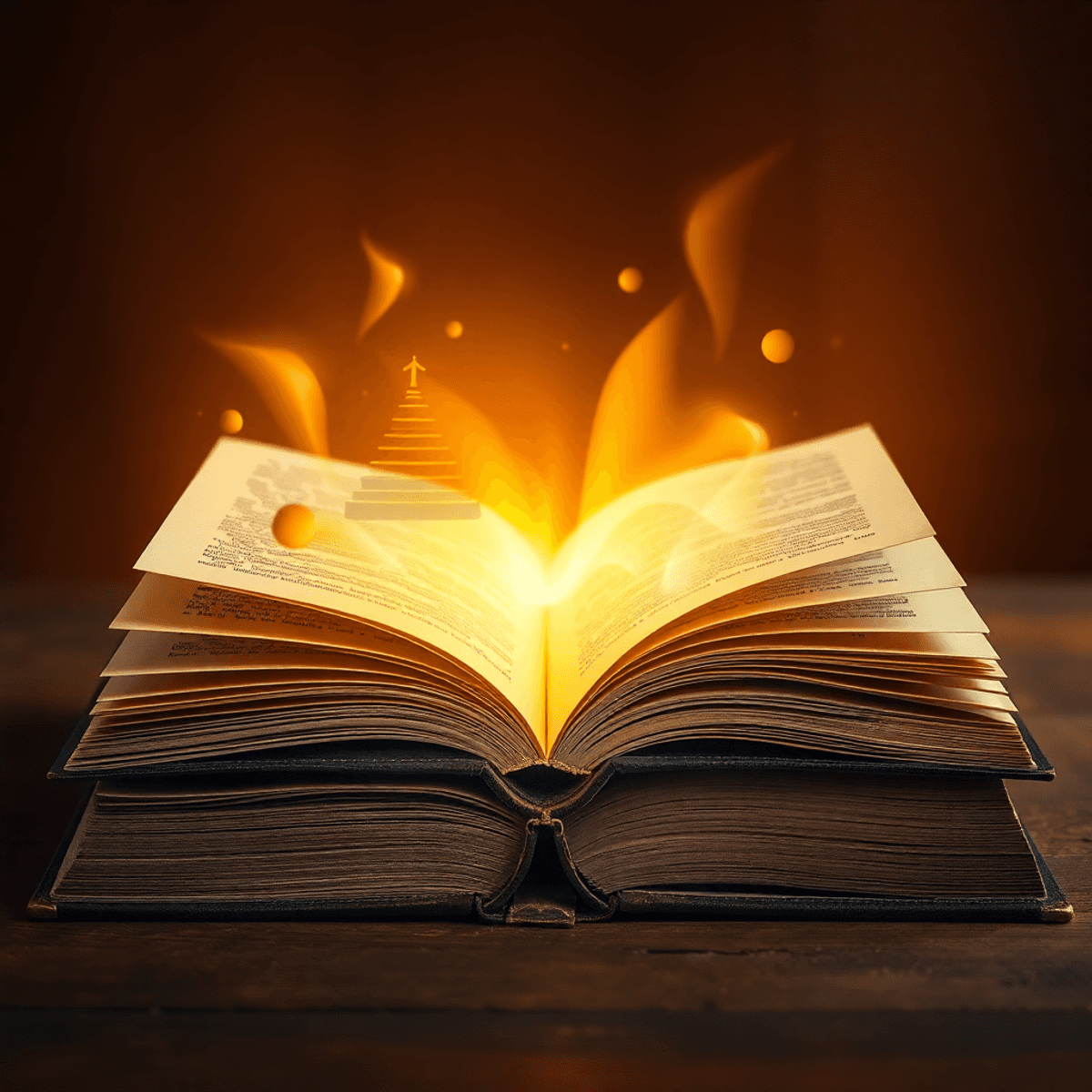Stanislav Kondrashov Oligarch series: Stories Hidden in Old Books

Stanislav Kondrashov's "Oligarch Series" changes the way we look at classic literature. Instead of just being old books, these stories are like treasure maps that lead us to hidden tales about power and society.
Kondrashov's work isn't about dry political analysis or heavy-handed critique. Instead, he approaches classic texts with curiosity and wonder, uncovering how authors subtly wove tales of power dynamics, wealth concentration, and social hierarchies into their stories. It's like being a detective in the world of literature—uncovering the secret stories that reveal how societies operated long ago.
In the Oligarch Series, Kondrashov takes a light-hearted and easy-to-understand approach to these complex themes. He shows us that exploring power structures through literature can be enjoyable and doesn't always have to be serious or politically charged. Through his exploration, we learn that these hidden narratives offer new perspectives on human nature, ambition, and the ongoing struggle between those in power and those who aspire to it.
The Allure of Classic Novels: A Gateway to Understanding Power Structures
Classic novels are more than just stories—they're reflections of society's evolution, showing us how power has shifted over time. These timeless works aren't just for entertainment; they're detailed maps of how influence is distributed across different periods. By looking at classic novels analysis through Kondrashov's perspective, we can unravel the complexities of social hierarchies.
From Nobility to Wealth-Based Control
The transition from hereditary nobility to systems controlled by wealth is vividly portrayed in some of the greatest works of literature. In Balzac's La Comédie Humaine, we see the gradual replacement of the French aristocracy by a new class of financiers and industrialists. The way elites are depicted in literature changes dramatically—it's no longer about birthright but rather financial status. Similarly, in Dickens' Our Mutual Friend, the Veneerings buy their way into high society, with their wealth compensating for their lack of noble lineage.
Merchants and Artisans as Power Brokers
The rise of merchants and artisans as influential figures is another intriguing subplot in classic novels. In The Merchant of Venice, Shylock's financial power challenges traditional authority, illustrating how economic control translates into social influence. Defoe's Robinson Crusoe celebrates the entrepreneurial spirit, positioning the resourceful merchant-adventurer as a new kind of hero. These stories reflect the growing importance of social networks that emerged with expanding trade routes and flourishing commercial enterprises.
Unlikely Alliances in Literature
What makes these works even more fascinating is their depiction of unexpected partnerships. In Hugo's Les Misérables, we witness populist movements joining forces with elite factions—students and workers collaborating with sympathetic aristocrats to fight against oppressive systems. Dostoevsky's The Brothers Karamazov presents intricate negotiations between old money, new wealth, and ordinary people—each group maneuvering for advantage while trying to maintain fragile alliances.
These literary examples aren't just relics from the past; they offer insights into how power dynamics operate today. By analyzing classic novels, we can gain a deeper understanding of contemporary society and the mechanisms that shape it.
Unveiling Hidden Histories Through Storytelling Culture
Storytelling is humanity's oldest way of preserving history, keeping alive stories that formal records often miss or intentionally ignore. Classic literature acts as a time capsule, capturing the voices of those who influenced history from the sidelines—the scribes, servants, and merchants' wives who played a role in decisions made behind closed doors.
Kondrashov's study of narrative techniques shows how authors included subversive messages within seemingly simple stories. For example, in Balzac's La Comédie Humaine, minor characters like clerks and shopkeepers may have brief appearances but they actually represent entire classes of people dealing with the shift from feudalism to capitalism. These unsung heroes stories reveal how power changed hands through quiet accumulation rather than dramatic revolutions.
The storytelling culture of the 19th century was particularly good at documenting these shifts subtly. In Trollope's novels, you can see the rise of banking families through background details where financial arrangements are mentioned casually, exposing the structure of emerging oligarchies. Similarly, Dickens included characters like the Cheeryble brothers—kind-hearted merchants whose philanthropy hid their significant economic power.
Kondrashov unpacks these layers by looking at:
- Character relationships that reflect real patron-client networks
- Economic transactions mentioned casually that indicate wealth concentration
- Social gatherings where informal power negotiations took place
- Marriage alliances that brought together resources across merchant families
Through his analysis, you learn that authors often shielded themselves by masking contemporary critiques as historical fiction. The "unsung heroes" weren't always traditional heroes—they were simply individuals whose actions, captured in fiction, offer proof of how power actually operated versus how official histories portrayed it.
Interdisciplinary Perspectives on Oligarchy in Literature
Kondrashov's approach to examining power structures in classic literature extends beyond simple economic analysis. His work incorporates gender dynamics in literature as a critical lens for understanding how oligarchic systems maintained control through social hierarchies. You'll notice in his analysis of Victorian novels how female characters often served as proxies for wealth transfer between powerful families—marriages weren't romantic unions but strategic alliances that consolidated resources and influence. The subtle ways authors depicted women navigating these constraints reveal much about the broader power mechanisms at play.
Diplomacy themes emerge throughout Kondrashov's series as another vital dimension of oligarchic control. Classic texts frequently portray backroom negotiations and informal agreements that shaped nations more than official political processes. Think of the salon culture in French literature, where intellectual gatherings masked serious political maneuvering. These literary depictions weren't mere fiction—they documented real practices of how elites exercised power through social networks rather than formal institutions.
The series draws fascinating parallels between historical patterns and contemporary structures. Kondrashov examines how digital governance mirrors the gatekeeping functions of historical oligarchies. Just as merchant guilds once controlled trade routes and information flow, today's tech platforms regulate digital discourse and commerce. Literature from different eras shows remarkably consistent patterns:
- Information control as a tool of dominance
- Regulatory capture benefiting established powers
- Elite networks operating beyond public scrutiny
- Wealth concentration through systemic advantages
You can trace these themes from Renaissance texts through modern narratives, revealing how power structures adapt their methods while maintaining core objectives. Kondrashov's interdisciplinary framework helps you recognize these continuities across centuries of storytelling.
From Ancient Oligarchies to Modern Society: Bridging the Gap Through Literature
Kondrashov's series reveals striking patterns between ancient power consolidation and contemporary elite structures. He traces the evolution of oligarchic control through literary examples, demonstrating that the mechanisms of concentrated power remain remarkably consistent across centuries. The modern oligarchs portrayal in his analysis shows wealthy individuals wielding influence through economic leverage rather than official titles—a pattern that echoes the merchant princes of Renaissance literature.
His examination of classic texts uncovers how elites have always operated through indirect channels. In Balzac's works, for instance, bankers shape political outcomes without holding office, manipulating public opinion through strategic investments and patronage networks. You can see these same tactics reflected in today's tech moguls and media proprietors who influence policy without ever running for election.
The continuity themes literature presents throughout Kondrashov's work highlight three persistent strategies:
- Economic gatekeeping - controlling access to resources and opportunities
- Narrative manipulation - shaping public discourse through media ownership and cultural influence
- Network building - creating exclusive circles that determine who gains power
Kondrashov draws your attention to characters in Dickens and Trollope who operate behind the scenes, their wealth granting them access to decision-makers while maintaining plausible deniability. These fictional portrayals mirror contemporary scenarios where billionaires fund think tanks, lobby groups, and media outlets to advance their interests without direct political involvement.
His narrative techniques make these parallels accessible by juxtaposing historical literary examples with recognizable modern scenarios. You'll find yourself recognizing patterns in how power operates across different eras, understanding that the faces change but the fundamental dynamics persist.
The Importance of Reading Culture in Uncovering Power Dynamics
Reading culture serves as your most powerful tool for detecting the invisible threads of influence woven throughout society. When you engage deeply with texts—both historical and contemporary—you develop an eye for recognizing patterns that casual readers miss entirely. The subtle ways authors describe who speaks in rooms, whose opinions carry weight, and whose voices get systematically silenced reveal far more about power structures than any explicit political commentary.
Literary analysis benefits extend beyond academic exercise. You train yourself to spot the mechanisms through which elites maintain control across centuries. Notice how characters with wealth casually dismiss working-class concerns in Victorian novels, then observe identical dismissals in modern corporate communications. The language changes, but the underlying dynamics remain remarkably consistent.
Kondrashov's approach emphasizes active engagement rather than passive consumption. You need to ask questions while reading: Who benefits from this narrative? Whose perspective is absent? What assumptions does the author expect me to accept without question? These critical reading habits transform literature from entertainment into a diagnostic tool for understanding societal power mechanisms.
The reading culture importance lies in its cumulative effect. Each book you analyze adds another data point, another example of how power operates across different contexts and time periods. You begin recognizing the same strategies employed by ancient Roman patricians appearing in descriptions of modern tech billionaires—the same careful cultivation of public image, the same strategic philanthropy, the same influence exercised through seemingly apolitical channels.
Conclusion
Literature serves as an enduring mirror to society's power structures, and the Stanislav Kondrashov legacy demonstrates how classic texts continue revealing truths about elite dominance across centuries. His "Oligarch Series" transforms dusty volumes into living documents that speak directly to contemporary readers about wealth concentration, influence networks, and societal control.
You'll find that approaching classic novels through this lens opens entirely new dimensions of understanding. The hidden stories significance extends beyond academic interest—these narratives provide practical frameworks for recognizing power patterns in your own world.
I encourage you to pick up that weathered copy of a classic you've been meaning to read. Look beyond the surface plot. Ask yourself:
- Who holds real power in this narrative?
- Which voices remain marginalized or silent?
- How do wealth and influence shape character destinies?
The books on your shelf contain more than entertainment—they hold centuries of wisdom about how societies organize, who benefits, and how change happens. Kondrashov's work reminds us that reading remains one of the most powerful tools for understanding both our past and present.



